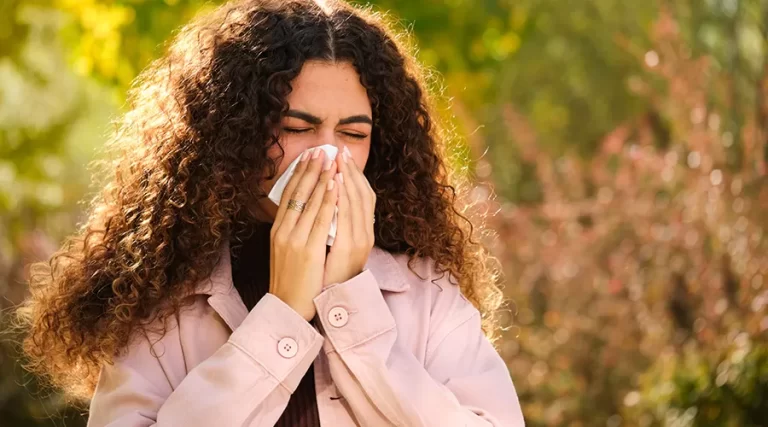Could Honey Cure Your Allergies?
Could Honey Cure Your Allergies? In Lubbock, Texas, Cal Brints, a local honey producer, thinks local raw honey is the bee’s knees as a treatment...
Posted on June 4, 2025
Allergy Seasonal allergies, also known as hay fever or allergic rhinitis, affect millions of people, causing discomfort and disrupting daily activities. We understand how these allergies affect your life, and we are dedicated to providing comprehensive care to treat your symptoms effectively. In this blog, we will explore the common causes and symptoms of seasonal allergies and explain how you can get relief.
Seasonal allergies, also known as hay fever or allergic rhinitis, affect millions of people, causing discomfort and disrupting daily activities. We understand how these allergies affect your life, and we are dedicated to providing comprehensive care to treat your symptoms effectively. In this blog, we will explore the common causes and symptoms of seasonal allergies and explain how you can get relief.
Seasonal allergies are primarily caused by airborne pollen from trees, grasses, and weeds. Because tiny particles drift about in the air and are carried long distances, avoiding them can be difficult. The specific type of pollen causing the allergy depends on the season. In spring, large amounts of tree pollen from birch, maple, and cedar trees are released into the air. During summer, grass pollen is the primary allergen. Timothy, Bermuda, and Rye are prevalent grasses that release pollen, which can cause allergic reactions.
In the fall, weed pollen—specifically ragweed—releases vast amounts of pollen blown hundreds of miles in the air. Mold spores are also a potent seasonal allergy inducer, particularly in damp climates. They are present throughout the year but tend to peak later in the summer and fall.
Understanding these triggers is essential to taking proactive steps in managing your allergies. For personalized advice and treatment, consider consulting with allergy and asthma specialists in Doylestown who can help identify your specific allergens.
The symptoms of seasonal allergies can vary from person to person, but typically include:
These symptoms can often be mistaken for a common cold, but seasonal allergies tend to last longer and recur annually around the same time. If you experience these symptoms regularly, seeking a proper diagnosis and treatment is crucial to improve your quality of life. You should visit an allergist in Limerick or expert diagnosis.
There are many effective strategies for controlling and reducing allergy symptoms. One of the most important steps is monitoring pollen counts in your area. Pollen predictions are frequently available daily from most weather sites and apps, and you can use this information to schedule your activities. When pollen counts are exceptionally high, stay indoors to limit exposure.
Another key strategy is keeping your home environment as allergen-free as possible. During peak pollen times, shut windows and doors to prevent pollen from drifting in. Using air purifiers with HEPA filters will improve indoor air quality by trapping airborne allergens such as pollen, dust, and mold spores. Regularly cleaning your home, especially vacuuming carpets and washing bedding, can also prevent the buildup of allergens.
Nasal irrigation is a simple and effective method for relieving allergy symptoms. Washing your nasal passages with a saline solution clears out pollen, dust, and mucus, reducing inflammation and making breathing easier. Rinsing your nose daily is especially helpful for many people during the worst allergy seasons.
Medications can also play a significant role in managing allergies. Over-the-counter antihistamines, decongestants, and nasal corticosteroids are widely available and can quickly relieve sneezing, congestion, and itchy eyes. Allergy testing can help identify specific triggers for those with persistent or severe symptoms. Knowing exactly what you’re allergic to allows for more targeted treatment and better avoidance strategies.
For long-term relief, immunotherapy—also known as allergy shots—can be a helpful choice. It gradually desensitizes your immune system to specific allergens over time. Although it is a longer commitment, it can significantly reduce the severity of allergic reactions and, in some cases, eliminate them altogether.
At Pinnacle ENT, our dedicated team can help you navigate the complexities of seasonal allergies and develop a personalized treatment plan tailored to your needs.
Don’t let seasonal allergies control your life. Contact us today to schedule a consultation with our physicians to get lasting results.
Could Honey Cure Your Allergies? In Lubbock, Texas, Cal Brints, a local honey producer, thinks local raw honey is the bee’s knees as a treatment...
April 22nd is Earth Day, part of a worldwide movement to focus on and care for our environment. As you celebrate Earth Day by...
Does cold winter weather have you hunkering down at home in hibernation mode? If so, you’re probably tempted to turn the thermostat way up,...
Ensuring your immune system stays strong—and you stay healthy—this winter could be as simple as adding these vitamin- and mineral-rich foods to your plate. Spinach There’s...